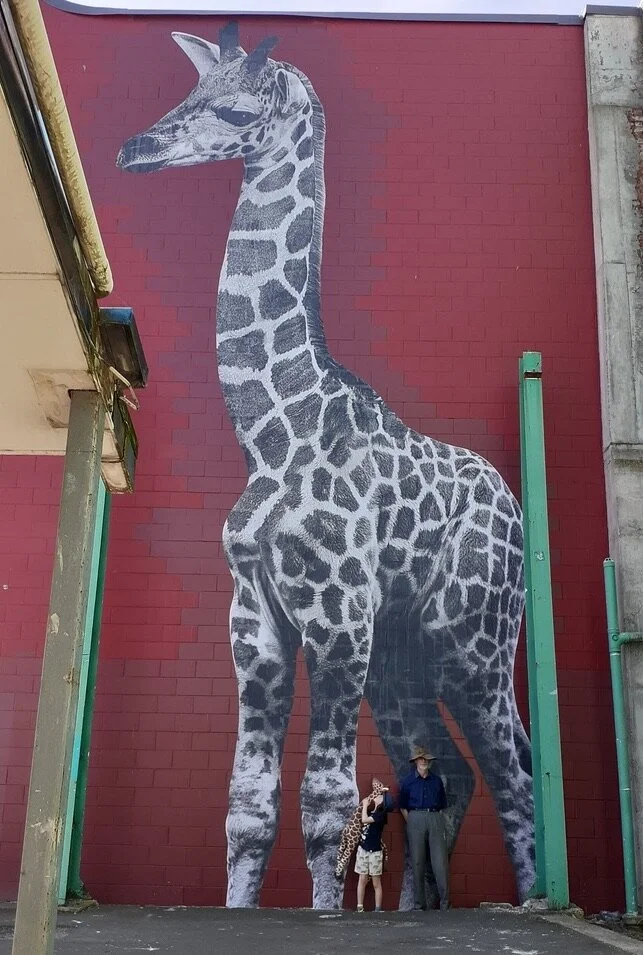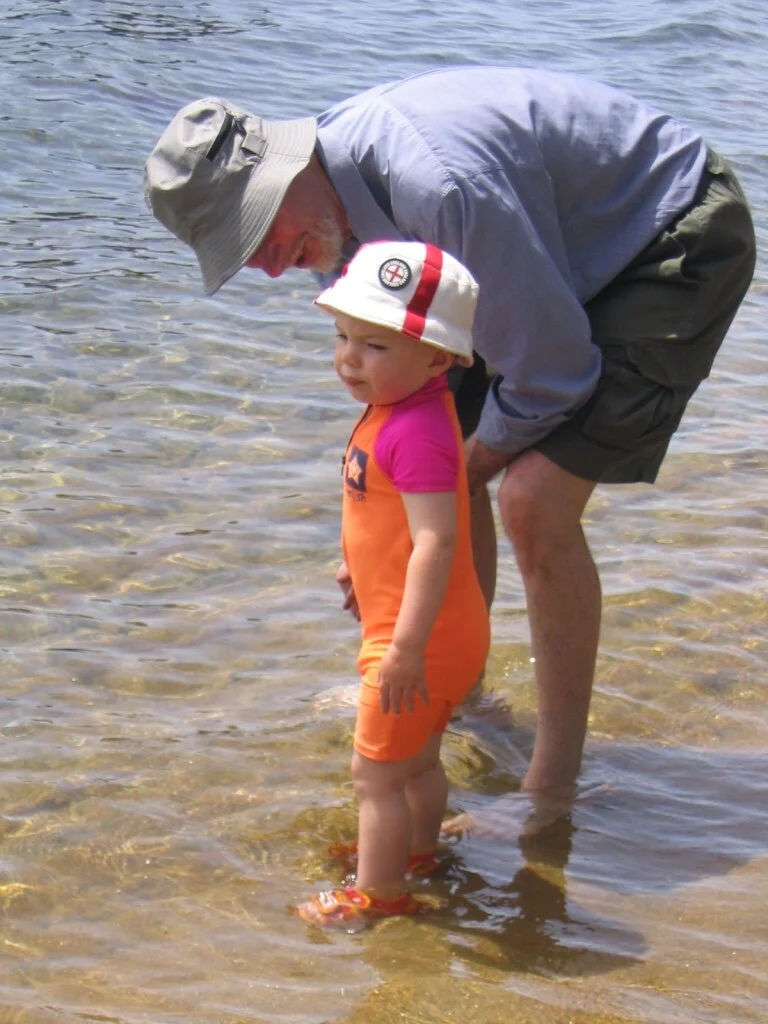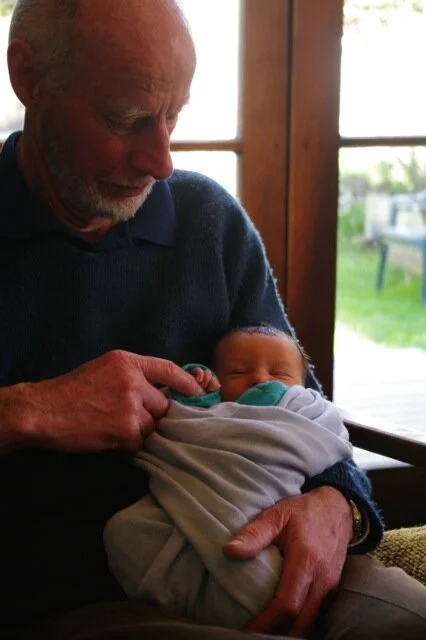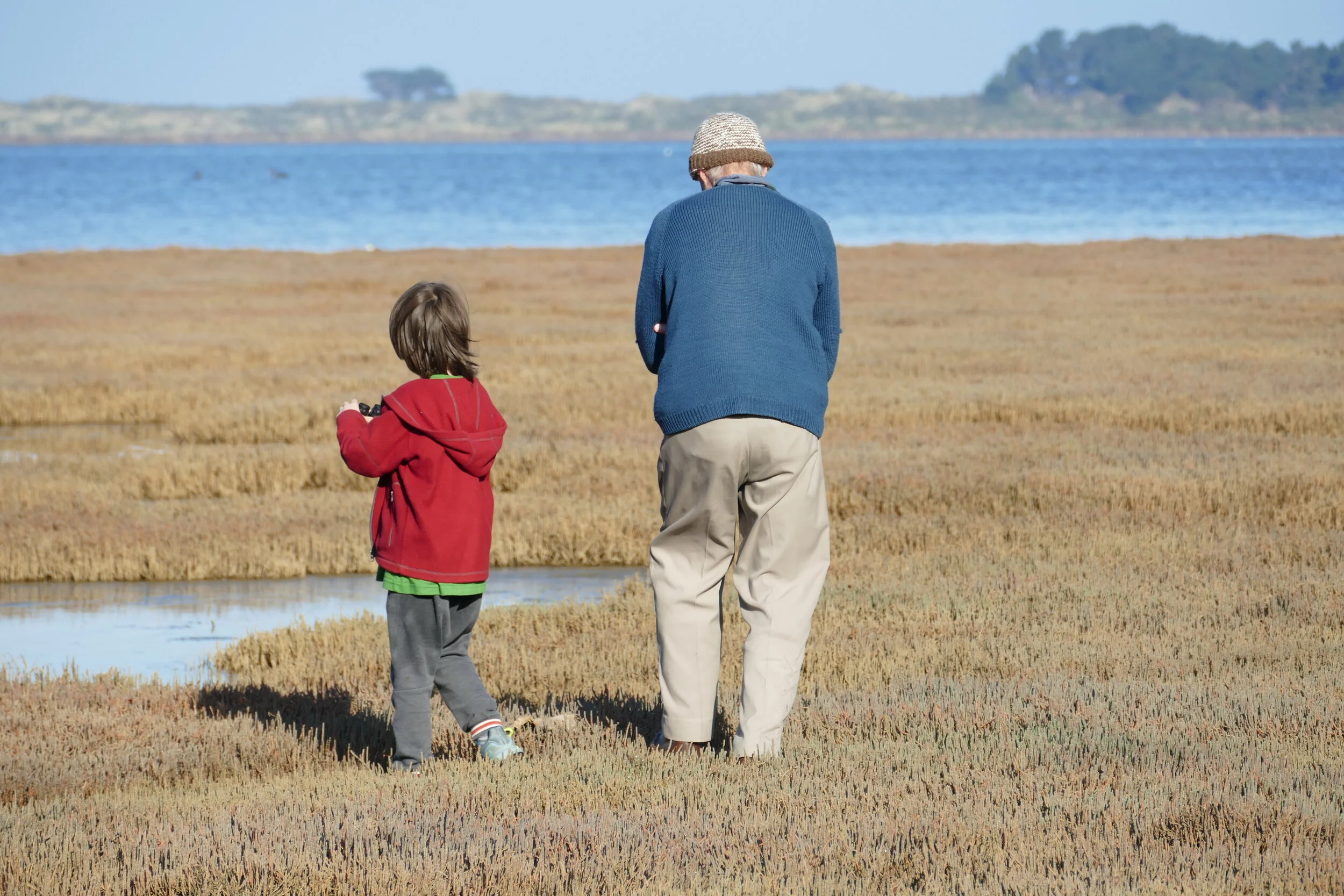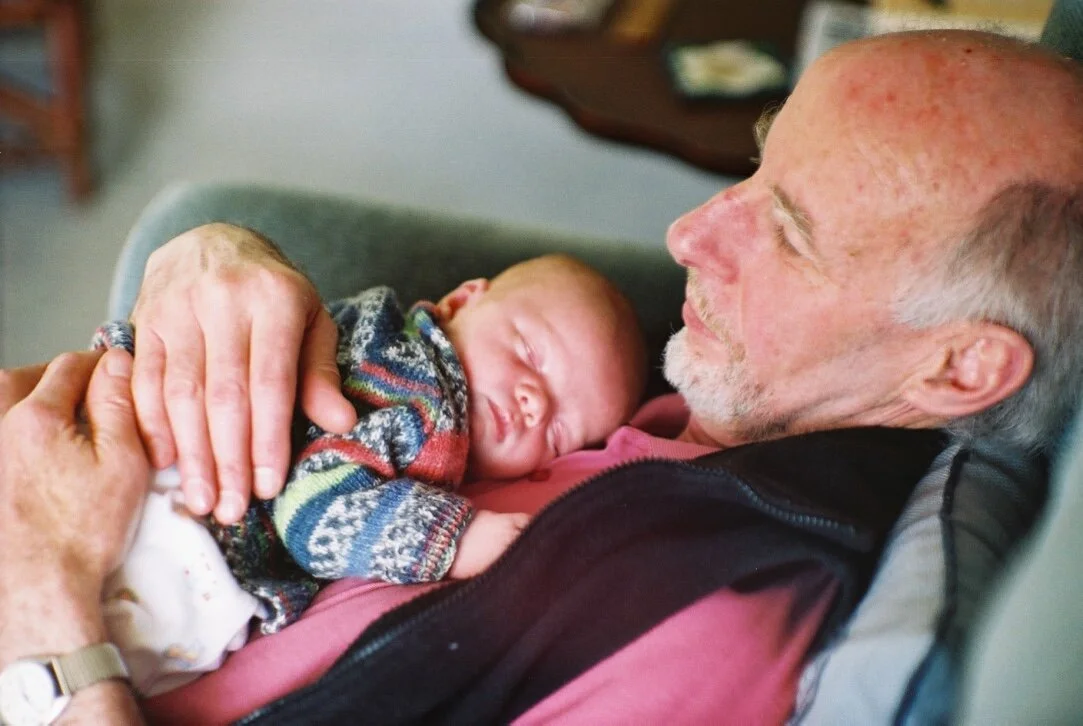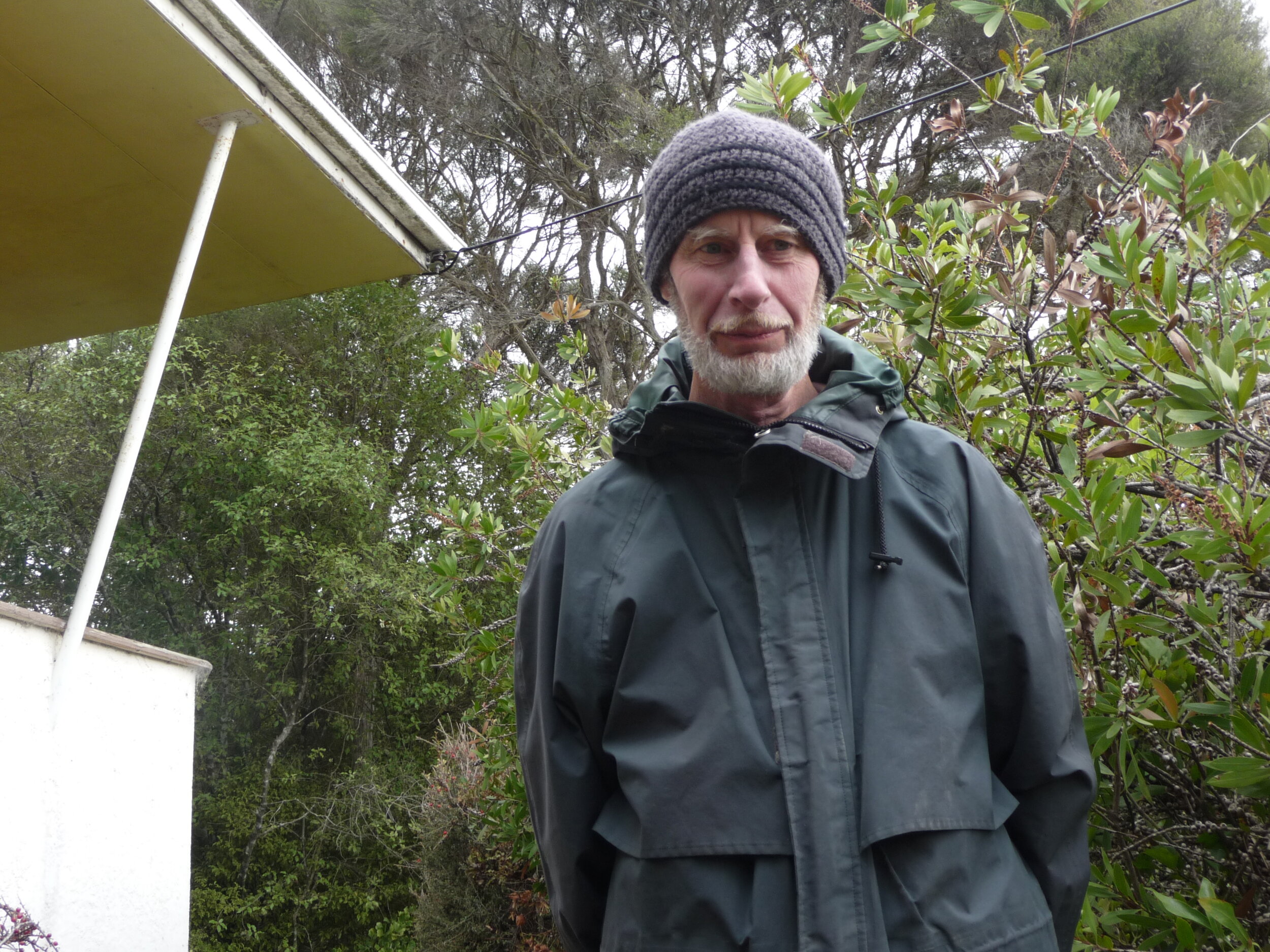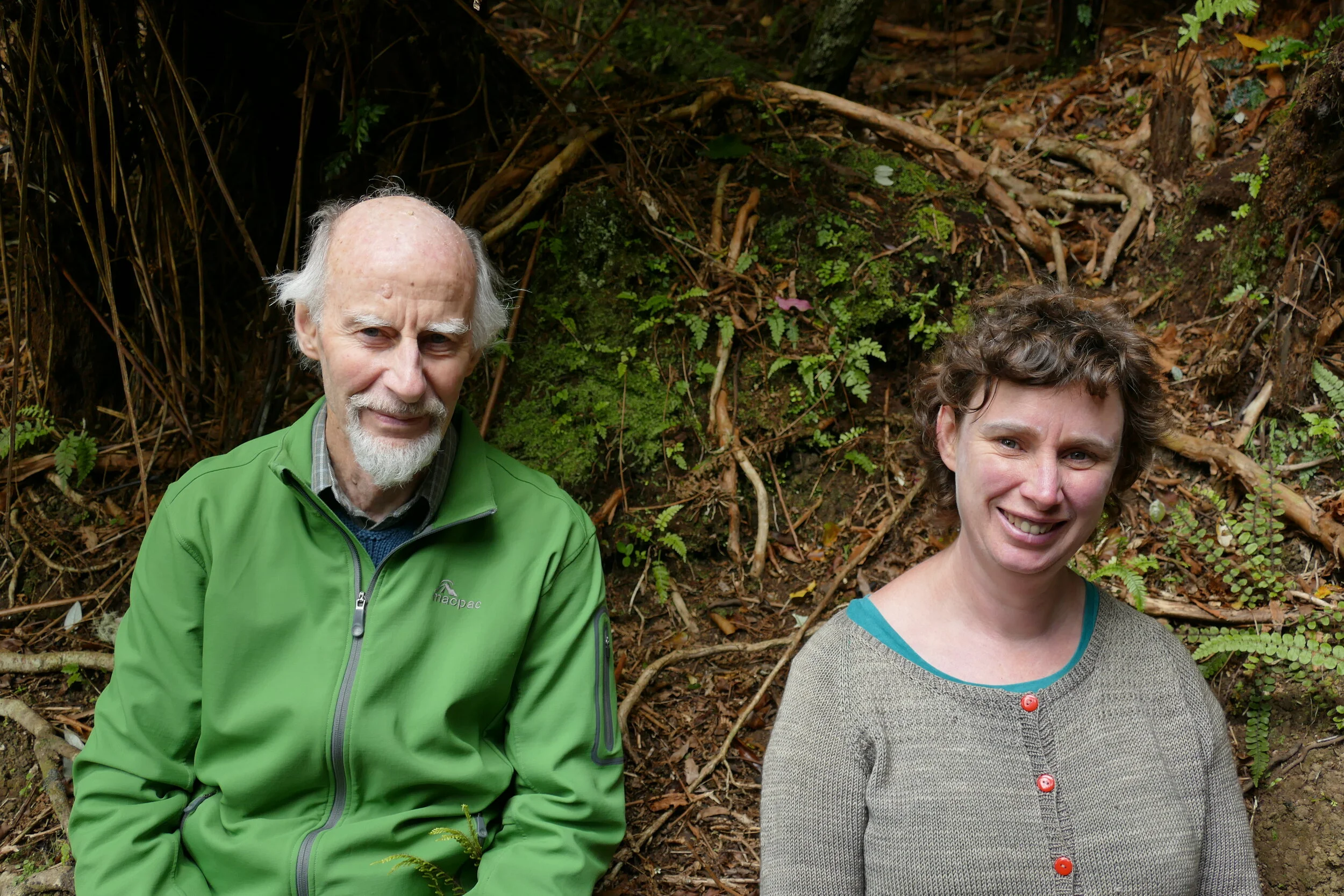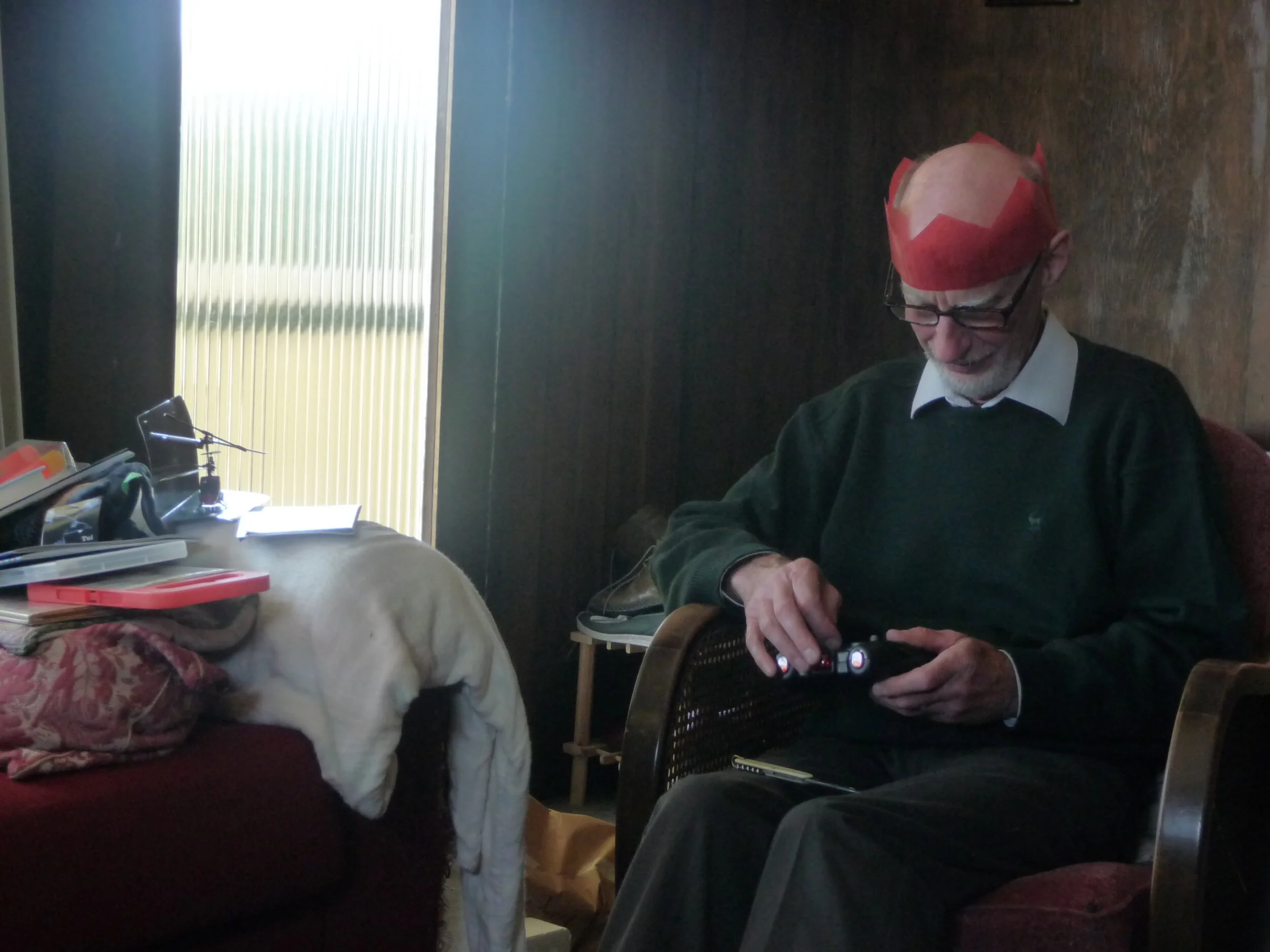Full moon passing
I should know by now, when I am troubled, to look to the sky. I didn’t sleep last night, have been edgy for days. We’re in Ōturu – a full moon rises tonight. Dad died on the solstice full moon, a night full of movement and purpose. The wind was strong and snow was on the way. He was a quiet man, but the elements spoke for him. This is the third time the moon has circled us since he passed.
Charles William McLaughlin never asked a great deal of others, gave willingly and offered much to those who took the time to get to know him. Grieving him requires attention and time. Distracted, I lose sight of him until the moon pulls and the tears fall.
Dad spent a lifetime learning about plants, loved the stars, took up archery and flying, was drawn to making things, took a mean photograph. My favourite memories are of Dad teaching me how to do things – propagate rhododendrons, paddle a kayak, take a photo and develop film, drive, plant a row of beans. He was patient and explained things with clear, well-paced instructions and plenty of scientific context.
But science met the heart and the eye in Dad’s choices – the aspects of his being were finely woven, a core of integrity that held firm when tested. One of the things we must do as we grow up is construct and understand the ethical framework we live by. Dad encouraged us to think about things but never told us what to think and seldom passed judgement. He encouraged us to find our own paths and was curious to see where they led. It is not always easy to be a tender-hearted, honest man in a world of sharp edges and bravado, but Dad held to his gentle, generous ways and took others as they were.
Dad loved to be outdoors and use his body – he was fit as an ox, with huge stamina. He tramped a lot as a young man, and being part of local tramping groups was one of the great pleasures of his retirement. We often went walking as a family, camping, skiing or on picnics – always with the trusty chillybin and a tub of Mum’s cheese spread. A gentleman to his marrow, he would walk with the slowest person and was always the last to take food.
Dad loved familiar haunts but also found great wonder and pleasure in discovering new places. His research took us on a family trip to the US in the early 90s. He and I went earlier as my sister was finishing exams. We stayed in an apartment in Philadelphia and combined our somewhat non-standard skill sets to figure out airports, the supermarket, university, neighbourhood and how to cook and look after each other. When Ian and I lived in Australia, Mum and Dad often visited, getting to know the intricate ways of Melbourne and the stately relaxation of Adelaide. Mum would find random weavers and craftspeople on the internet; she and Dad would carefully study the Melways then set off to out-of-the-way studios and warehouses. They stopped for a coffee or lunch and came back with stories to tell. They took me to see dear friends in Brisbane when my firstborn was a tiny baby. Dad thoroughly approved of the heat and lush greenery and took me for walks through the streets with the baby strapped to his chest or mine. He and Mum had some wonderful trips; I wish they’d had more.
When Mum died, it broke Dad in two. He grafted himself back together for us, kept his heart open to welcome and cherish his grandsons, held fast for 12 long years without his Robin by his side. After a long, slow decline, Dad was reassessed as needing high level dementia care. The move into the dementia ward knocked him off the edge – I wish we’d seen our way clear to take another path. We gathered close, sat with him through the last weeks of his life. It wasn’t enough. Were there any justice in death, he would have had Mum back, a last spring, his mind restored. It was all we could do. He carried us through the hardest years, and I hope we carried him too.
For every hard journey, there are circles of support. Family and friends bolstered us and filled the gaps we couldn’t. They brought food, kept us company, sent messages, said karakia and prayers. They gave us the service we wanted and held the manaakitanga. They helped fill Dad’s grave, read the tohu, sang him out over the sea, and ate with us when it was all over.
A few too many people commented on how they’d struggled to connect with Dad, how they wished they’d got to know him better. “Your loss,” my sister and I took to muttering to each other. A little hatred flared each time – it hit a bit close to home. Dad’s reserve was just a part of him, woven with the gentleness, the humour, the strength. Take out the more difficult parts of a person and the whole collapses – you lose them. He told me once that he worried he was off-putting or scary to people. It broke my heart that he would feel that. It’s a crappy world that loves in doses, loves with conditions. Dad refused that kind of reductionism, as we all should. He accepted people as themselves, loved them whole, and the best people loved him likewise. Like all his lessons, it was a good one, took a lifetime to learn and is tougher than it looks.
My big kid isn’t a talker, but he patted me after the funeral. “That was good,” he said. “You did well.” I’m tired of doing well. I’d rather have my family back.





























